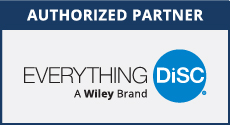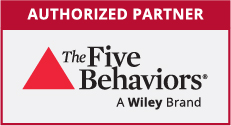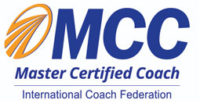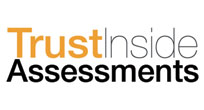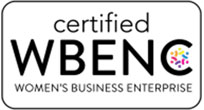“Maintaining Forward Momentum”
People Whispering Tip
![]() >
>
It is true that I am an optimist by nature. That said, I am a practical grounded one rather than just a starry-eyed dreamer. Dreaming is important, vital even in my experience. Having an idealist vision for your life and for the world is what keeps us moving forward. I believe we are entering a time in history that we will look back on as being truly transformational. If anyone needs evidence that the old ways of greed, hoarding information and knowledge, and/or consumerism solely for instant gratification is damaging, you’ve been living under a rock the past six months.
Just as Christopher Columbus sailed the oceans with erroneous assumptions and yet uncovered a new land, we are in the process of discovery as well. Just as his despairing sailors saw signs of land in the form of twigs and branches in the water before they reached the shores of the new world, we are in the process of creating new forms of empowering leadership and collaboration. Globally as well as personally, this growth can be messy.
In my own work, I have seen much of the training and developmental efforts of well-meaning companies get put on hold as they struggle to survive. This is sometimes prudent and the wisest thing to do. When someone is hungry, you give them food and take care of their immediate need. You don’t give them inspirational lectures and training courses until their basic needs are met. At the same time, while we are doing what we need to do to meet our needs and cover our expenses, an education in the art of transition can prove beneficial.
At present, I have the privilege of working with Macy’s employees who are being outplaced in the Atlanta market. We are teaching people how to assess their talents and share the wonderful accomplishments they have made to the corporation and to their customers over the years. We are sharing how to research opportunities and consider options that they may not have considered before. Assisting people with the art of thinking about their work lives in a new way is a passion of mine. Once people have hope that they can navigate their own transition because they have more influence than they realize, they can focus in and match their talents to the current needs. There are opportunities out there even though uncovering them may require being creative and thinking in completely different ways than previously.
So much of success in life is a strong and yet balanced belief in yourself. Ask yourself what are your unique talents and skills and how can you leverage them in a variety of situations and contexts? There are great resources to help you in doing this including my book, A Guide to Getting It: Self Esteem, Po Bronson’s book What Should I Do With My Life?, the classic by Richard Bolles What Color is My Parachute 2009?, any book by Barbara Sher and many more.
Most importantly now though is to recognize that you may be going through a sense of loss. If you have lost your job or your business is slow or you are in any way uncertain about your future (and who isn’t?), you can soothe yourself by realizing that it is very normal to experience a roller coaster of emotions in these times. Avoid judging yourself if you feel a loss of identity. Rest assured, you are not your job or what you do although our culture is certainly oriented that way. Even if you have not been directly affected by the current economic situation, even seeing those who have or seeing local stores and restaurants going out of business can be a sense of loss. Sometimes, people experience “survivor guilt” when their friends and colleagues lose their jobs while they remain with the organization.
In this month’s Transformational Coaching Tip, I will share strategies to manage your emotions so you can move forward in whatever form of transition you may be experiencing. I am a strong advocate of the power of thought and attitude in creating your experience personally and professionally. When you understand how this really works however, you understand that it is not a matter of covering up what you are feeling by putting a bandaid on the wound. The wound does need to heal by acknowledging that it is there. In the same way, acknowledging a loss even if you are happy about your next prospects is a healthy thing to do as long as you don’t wallow in it. Here is what to do to acknowledge the loss and release it:
- Create a dialogue and ask for support from qualified people. Ask for advice and support from people who have career transition expertise and not just from friends and family who are well-meaning but don’t have the answers. In all of the career transition work I am doing right now, I see many people who share what their friends, family members, or colleagues say about job search techniques, the market, etc. You wouldn’t ask them about brain surgery would you? There is an art and science to finding the right opportunities for you and landing them. Ask people who have expertise in that arena.
- Be patient with yourself and others going through this process. You can expect to go through a roller coaster of emotions so know that that is normal and natural. Now is the time to practice extreme self-care and to create opportunities for structure and support in your daily routines. Also, surround yourself with positive people and environments. You want to be with people who can provide empathy and not sympathy. Be with people who are moving forward and not with those who are “awfulizing.”
- Focus on your strengths. From a practical job-hunting or creating a business stand-point, what you want to share with prospective employers and/or customers is what you have accomplished in the past and what you can do for them in the future. It is not enough to share what you’ve done, or like to do. Be prepared to share how you can create results for them. This also allows you to feel more confident that you do have a lot to offer and are valuable and important.
- Look for links and clues. In career coaching, we ask people to look for transferrable skills. Where else can you leverage your talents and apply your skills? Likewise, where and why have you thrived in the past and how can you recreate those factors in your new work environment.
DiSC Assessment Application

Since this issue has been focused on collaboration and teamwork as key components of leadership, it seems most appropriate to highlight the Team Dimensions profile this month. The Team Effectiveness section under Training and Development at www.lauraadavis.com goes into further detail about this assessment as well. Despite all of the gloom and doom about the economy, some companies are still thriving. They are the companies that provide excellent customer service and take a long-term relationship approach to their business. It always amazes me when I hear people saying something to the effect that “this is just business.” Who do they think runs a business, buys from a business, makes the business what it is? That’s right – people. So business is inherently personal, no exceptions.
One of the best ways to ensure that people feel well served and treated as individuals is to understand their style and by employing the art of people-whispering. The assessment tool I’d like to highlight this month is the DiSC Customer Service Action Planner. This tool allows a customer service professional or anyone on the front line of any business operation to read their customer’s style so that they can adapt to them accordingly. This prevents misunderstandings and greatly contributes to the customer’s sense of being treated as a unique and special individual. When competition is fierce, this personalized service can make the difference so that your customers keep coming back to you.
For more information about how to use the DiSC Customer Service Action Planner and/or for support in your career transition, please call us at (404) 327-6330 or email Laura@lauraadavis.com.
Transformational Coaching Tip

At present, I am doing more career transition coaching than I usually do. While a job or business loss is seldom pleasant and can be frightening, it truly can be an opportunity to reassess and regroup.
Here are this month’s top suggestions for staying positive and solution-focused while going through a transition.
- Cut back on the amount of time you spend watching the mainstream news and never watch before you go to sleep. Put yourself on a mental diet and watch the Jim Lehrer hour on public television. Read anything by Dr. Joseph Murphy and/or other inspirational literature. Read Ode magazine for the intelligent optimist. Mainstream media can be sensationalist and unbalanced so monitor your intake like you would any potentially unhealthy substance.
- Take some time each day to play or otherwise enjoy life. People often tell me they don’t have time. I understand as everyone is busy. Still, having a sense of play and wonder about your daily activities is key. Get over the Puritan work ethic and enjoy your life. Personally, I take walks in nature and have a little chocolate every day.
- Do some form of meditation or deep breathing every day. The scientific evidence regarding the value of meditation is overwhelming. There are so many positive benefits that it is well worth your time and attention.
- Write a gratitude list and keep reviewing it. So much of going through change and transition successfully is around perspective. Write out what you are grateful for each day even if it is as silly as being able to get out of bed that morning. Watch your life get better and better with this simple practice.
- Take some time for self-assessment and then act purposefully. So many people put their resume together quickly and send it out to anyone or post it online without giving any careful consideration to who they are, what they want, and what they bring to the table. Think this through before you act so you can land something that is a match to you and your gifts where you will thrive and not just survive.
- Write out a detailed action plan or create a mind map regarding your job search or business plan. There is great power in putting things on paper so you can sequence tasks and manage your time and energy more effectively. Just getting all of the thoughts and feelings that are swirling around in your head out on paper can be useful too.
- Keep a journal to express your upset in rather than take it out on those around you. Many people resist keeping a journal for a variety of reasons. Regardless, getting your thoughts out on paper can be a great form of release. You can look at them, laugh at them and avoid conflicts with those you care about because you’ve cleaned up your own emotions prior to interacting with them.
- Do some volunteer work to feel useful and to connect with others who need support. Making a difference in someone else’s life is the key to inspired success in my opinion. It will help you to feel worthwhile and will provide you with perspective when needed.


